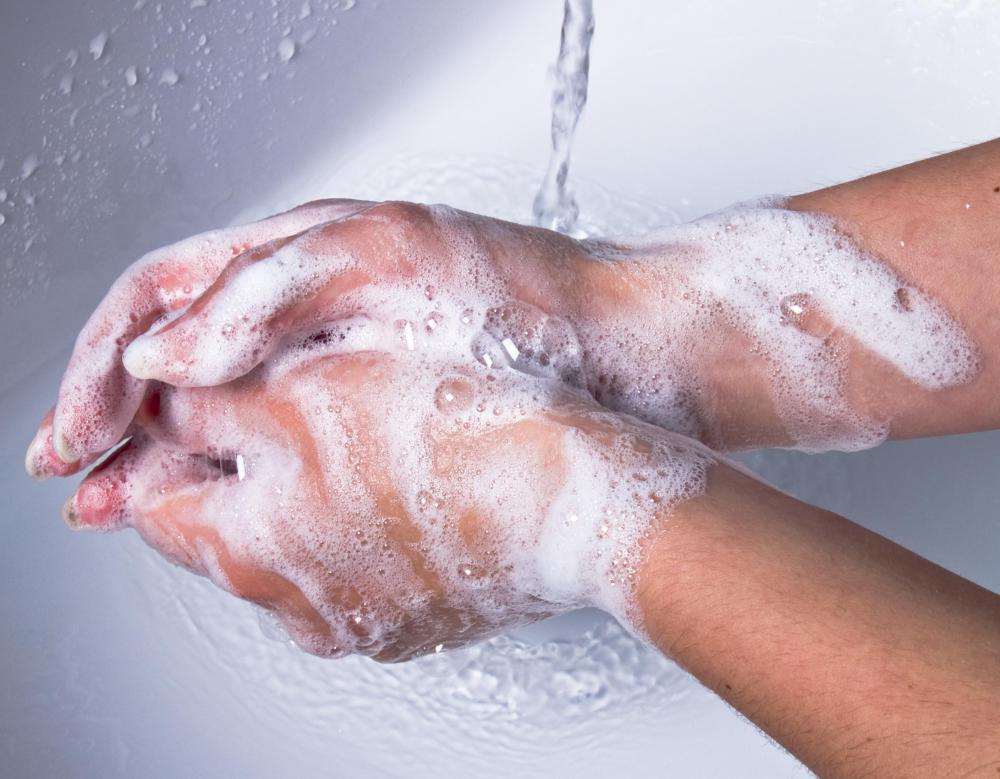At WiseGEEK, we're committed to delivering accurate, trustworthy information. Our expert-authored content is rigorously fact-checked and sourced from credible authorities. Discover how we uphold the highest standards in providing you with reliable knowledge.
How Do I Tell If My Child Has an Impulse Control Disorder?
You can generally tell if your child has an impulse control disorder by observing and documenting certain behaviors that do not diminish over a significant time period. An impulse control disorder in kids often makes its first obvious appearance in the first couple of primary school years. While many kids have different maturity rates, some experience noticeable difficulty in a structured school environment because they are unable to delay gratification or follow directions. Other signs of an impulse control disorder may include frequent distractibility, poor concentration, risk-taking behavior without thoughts of the consequences, and problems completing one task before moving on to the next one. Kids with impulse control disorders often stop at nothing to satisfy their various drives for pleasure, even to the point where they are indifferent to punishment doled out as a result of such actions.
Mental health professionals usually classify impulse control as the ability to mentally process basic emotional desires and to resist the urge to immediately give in to them. Impulses are closely tied to drives for rewards such as material possessions and approval from other people. Different children develop impulse control at various rates just as they reach other maturity benchmarks at different rates. Impulse control disorders are often associated with poor school performance, difficulty with peer relations, and frequent emotional outbursts.

Children who display this kind of inattentive and outwardly rebellious behavior that does not improve by the ages of six or seven are generally more likely to have an impulse control disorder. Chronic impulsivity can often indicate a range of possible conditions such as Attention Deficit Disorder (ADD), Obsessive Compulsive Disorder (OCD), or antisocial personality disorder. One of the most important steps of treating impulse control disorders in children is to have an experienced mental health professional evaluate them thoroughly in order to diagnose or rule out one of these conditions.

Psychologists who study impulse control in depth usually report that all people are born with a certain level of ability to regulate this kind of reactive behavior. This trait is tied to the chemical make-up of the brain's frontal lobes, and it is thought to be an inherited characteristic. Children who are genetically predisposed to have poor impulse control can frequently learn the skills they need to manage their emotions and gain appropriate control over their actions. A key to success with this endeavor is the ability of their parents to teach them these specific skills in order to minimize the development of a pronounced impulse control disorder.
AS FEATURED ON:
AS FEATURED ON:
















Discussion Comments
@burcidi-- Difficulty controlling emotions is also a sign of ICD. So if a child becomes excessively angry or sad, it can be due to this disorder.
@burcidi-- My nine year old son has not been diagnosed with an impulse control disorder but he has ADD and oppositional defiant disorder. The child psychologist also mentioned impulse control disorder a few times, but has not given an official diagnosis.
As far as I understand, impulse control disorder is basically when a child acts on whim, and sometimes does things for no rhyme or reason. For example, my son has an aggressive side to him and sometimes he will have a fit of rage out of nowhere. He will break things at home or just yell and scream.
It also happens at school and he pushes and hits kids around him even though nothing is wrong. When you ask about it after the fact, he also doesn't know why he did it. Sometimes he regrets what he does and sometimes not.
What kinds of things does a child with an impulse control disorder usually do? Or an adult for that matter?
For example, when I get a craving for a food, I will go out of my way to get it, even if it's in the middle of the night. Does this mean that I have a problem with impulse control?
Post your comments